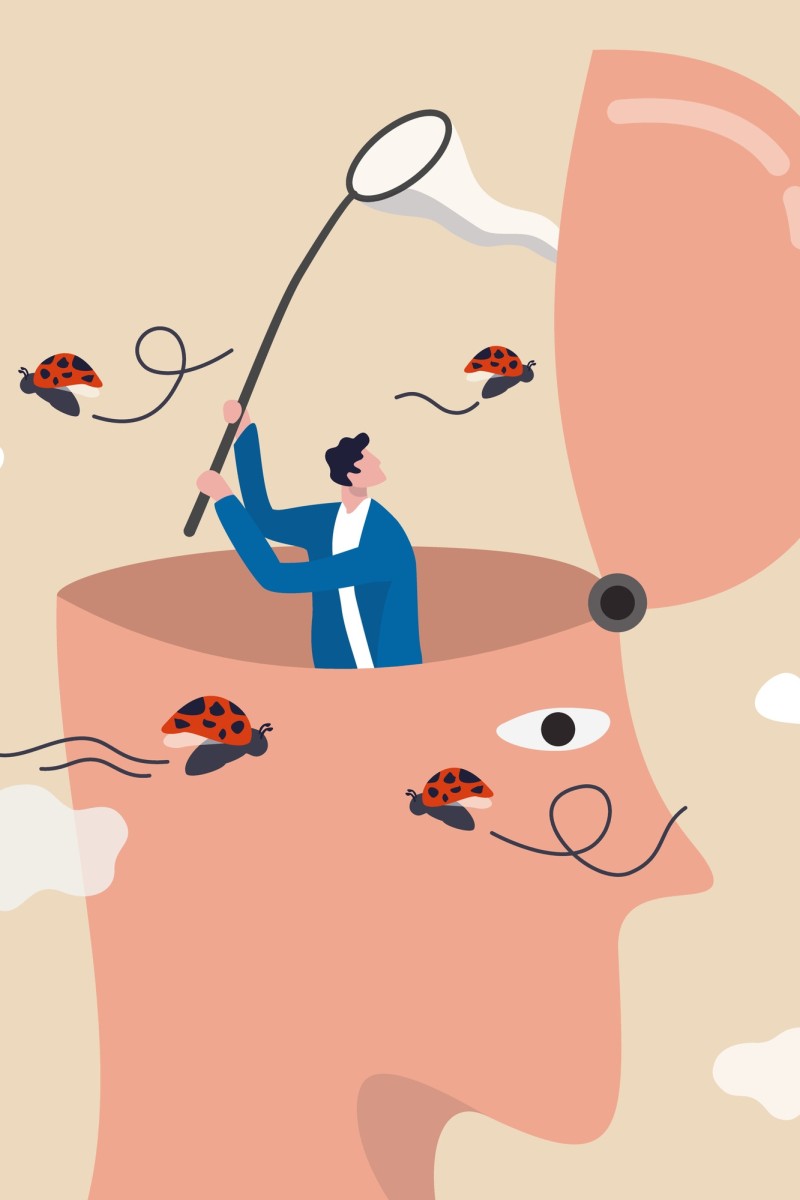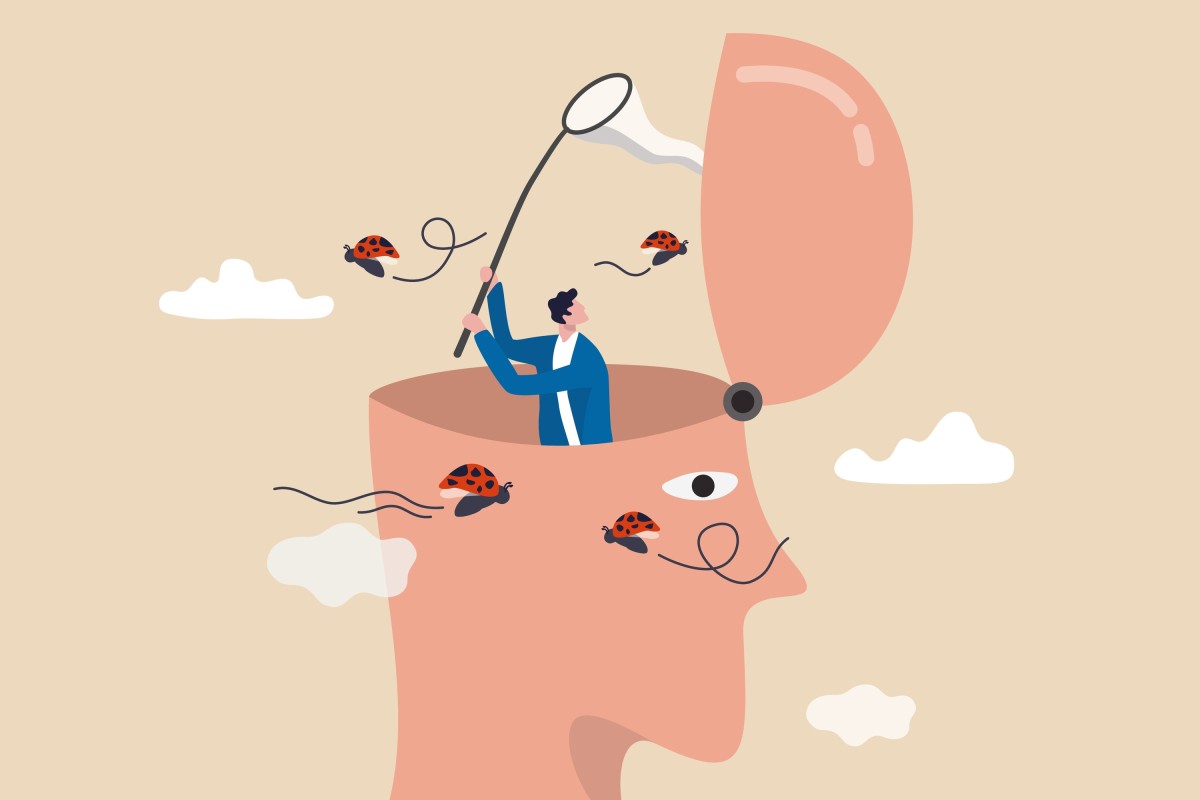
How information overload and mental exhaustion during Covid-19 affects your attention span
- People are feeling mentally drained during the coronavirus pandemic, and many say they have a hard time concentrating on films or books
- Increased isolation has meant a greater need for stimulation and human connection
 Have you been more distracted since the start of the pandemic? Information overload has had a huge impact on your mental health, resulting in “Covid fatigue.” Photo: Shutterstock
Have you been more distracted since the start of the pandemic? Information overload has had a huge impact on your mental health, resulting in “Covid fatigue.” Photo: ShutterstockMaybe you’re the kind of person who could stomach, or even enjoy, a 2+ hour movie before the pandemic. But have your feelings changed now?
We are two years into a pandemic that continues to ravage the globe, most recently by the Omicron variant which has made up 73 per cent of new cases in the US.
A potential side effect may be our inability to concentrate on much of anything else – like a movie. Planning to sit through one? The latest running times for films like Dune, Spider-Man: No Way Home and West Side Story run around 2 hours and 30 minutes at least. Checking out Netflix or HBO’s latest drama? It likely has an hour-long running time per episode.
My homework has tripled during the pandemic – what can I do?
It’s unclear whether the Covid era has had a quantifiable effect on our attention spans, though experts confirm mental exhaustion is a widespread problem.
“Covid has pretty much eaten up my attention span,” said Kathleen Schmidt, publicity director at Skyhorse Publishing, a book publishing company in the United States. “I can’t get through an entire book unless it’s an audiobook. The prospect of a 2.5 hour movie sounds like torture.”
Social justice advocate Lia Taylor Schwartz added: “I can’t watch a whole movie any more. I set goals to read a single chapter of a book when previously I would have loved reading a whole novel.”
“Covid has led to many people experiencing cognitive overload, whereby our brains become short-circuited due to being overwhelmed with information to process,” said Crystal Burwell, director of outpatient services for Newport Healthcare Atlanta in the US state of Georgia. “The external stimuli and nature of the environment play a major role in attention spans and building the emotional resilience needed to combat Covid fatigue.”
What is time blocking, and how could it help you?
The pandemic has accelerated shifting attention spans and made it easier for people to satisfy themselves with shorter-form content instead.
“This struggle was mounting since before Covid,” said Sabrina Romanoff, a clinical psychologist and professor at Yeshiva University in New York City. “We only have a finite amount of mental resources and energy. The more that becomes compounded, the more we must compensate by cutting out the unnecessary drains on our mental reserves.”
Mindfulness tips to help you stay focused
Are attention spans actually decreasing?
Unless you’ve been living under a rock since March 2020, Covid will have somehow upended your daily life.
“This level of unpredictability has caused people to live with a higher level of agitation, anxiety and worry, which makes it difficult to concentrate and get invested in projects that require our full attention,” Romanoff said. “Instead, people are putting blinders on, while they conserve their energy, to superficially engage in more mindless activities or shows to distract them without feeling drained of their mental resources.”
People have been itching for shorter versions of entertainment for a while.
“The influx of multiple kinds of entertainment – social media, YouTube videos, user-generated content – means there is more choice for shorter form content,” said Yalda T. Uhls, founding director of the Center for Scholars & Storytellers at the University of California-Los Angeles, adding that the demand existed even before the pandemic.
But not all experts are convinced attention spans are decreasing. Limited studies have shown that young adults have been able to sustain attention the same way as before the pandemic, aside from those who experience the mental fog associated with long Covid.
“Even before the pandemic, there were conflicting ideas concerning whether our attention spans are actually decreasing or not,” said Keiland Cooper, cognitive scientist and neuroscientist at the University of California-Irvine, based in the US.
5 tips for better concentration
“Our attention varies depending on the task at hand, our mood, environment and a host of other factors. This makes it difficult to study and try to find a ‘catch all’ metric to study over time.”
Cooper said our attention spans aren’t the main issue, but rather, the sheer volume of content with which we’re presented.
“We have more stress and information overload,” Cooper said. “It is not that we have lost the capability to watch and find ourselves engrossed by long-duration stories – whether it be a movie, a series, or even a conversation – but rather we may have to spend more time thinking about and dealing with the added stress we didn’t have before. This certainly will affect attention.”
People have also become used to binging, piecemealing, pausing and stopping entertainment over the last two years, said Cristel Russell, professor of marketing at Pepperdine University in California.
“I do believe that people may have a harder time remaining engaged in longer films as a result of the pandemic,” said Rachel Cavallaro, a licensed psychologist with Thriveworks in Boston, in the US state of Massachusetts. “It seems that most people are consuming the majority of their entertainment in 10-to-30 second bits, which can make it a challenge to remain focused for an extended period of time, especially in a lower intensity show or film.”
How to handle the ‘Sunday scaries’
The reality of pandemic fatigue
Pandemic fatigue is a real thing (just ask the World Health Organization), leaving people demotivated and exhausted with regular tasks.
“It is natural to feel this way, particularly because the pandemic is an unnatural event that has lasted much longer than anyone initially thought,” Cavallaro said. “The increased isolation has created an even greater need for stimulation and connection.”
One to two years of this “could significantly reduce your attention capacity,” she added.
People are also more easily distracted.
“It’s all too easy to look at your phone, browse in a separate window, go run some errands or clean up the house,” Cavallaro said. “These tasks feel more stimulating since they grab your attention versus listening to a lecture, attending a meeting or doing administrative tasks.”
Covid fatigue also affects different age groups differently.
“Children and young adults are going to have a harder time paying attention in school, while adults are going to have a harder time completing work tasks as well as household chores, and the elderly may appear to have increased memory issues,” Cavallaro said.
In Russell’s mind, attention spans aren’t something people need to try and “improve.”
How journaling can help you reduce stress and process your emotions
“Entertainment by definition should be fun and enjoyable,” she said. “We find that consumers consume entertainment much like they consume food. Some like to nibble, others like to feast, and some like to garnish – which means they do something else while having entertainment in the background.”
If you do want to improve your attention span, Cavallaro recommended “healthy diet, regular exercise, meditation, and proper sleep hygiene.” Burwell suggested “therapeutic techniques such as mindfulness and grounding techniques (to) help centre our mind and body to be fully present in the moment.”
And if strapping into a 2+ hour movie still tickles your fancy after the last two years, so be it.